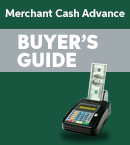Types of Business Loans
There are plenty of loan options out there. It can be difficult to determine what type of loan would be best your business. Generally speaking, there are two basic types of loans. ALL loans are either secured or unsecured loans.
Secured loans require collateral, while unsecured loans do not. It is important to understand the differences between the two. The size and age of your business (start-up, new, existing) will determine which type of loan you qualify for.
Many loans can function as either secured or unsecured. It will depend on the terms dictated by the lender. See below for a list of specific types of loans.
Line-of-credit Loan
A line-of-credit loan is where a borrowing limit is extended. In other words, you receive the ability to borrow up to a certain amount, and you are only charged interest after you make your first purchase against the line of credit. For example, you may secure a line of credit in the amount of $10,000. That means that the maximum amount you are able to borrow is $10,000. However, you will only pay interest on the amount that is actually used/advanced. This offers businesses working capital that can be used for daily expenses such as purchasing inventory and handling operating costs, but the money cannot be used for large purchases like equipment or property.
Micro Loan
A micro loan does not require the credit approval for funding that is needed for a traditional loan. Rather, it is a small loan issued by individuals (or a group) to start a business.
Micro loans are considered unsecured because they are not backed by collateral.
Term Loans
If your business needs working capital for making payroll, paying for inventory, or other temporary cash flow problems, a short-term loan could be the solution. The term for pay-off is shorter than a traditional term loan and the interest rate is usually higher. Additionally, this type of loan often requires a daily payment, rather than a monthly one. These types of loans are similar to traditional term loans in that you borrow a specific amount of money and pay it back over a set term.
Term loans can be written to meet any type of business need and are correlated to the purpose of the loan. Real estate and renovation loans, for example, involve a larger amount of capital, so they are considered long-term loans. A loan is usually considered long-term when it is 10 years or more. Depending on the repayment amount and term, installments can be made monthly, quarterly or even annually.
A balloon loan is easily recognized by its repayment terms. Balloon loans are paid back with interest-only installments. Then, the final payment is a “balloon” payment of principal. The monthly payments are lower because you are only paying on the interest. If a borrower is waiting on a big payment from a client, then a balloon loan is a great option.Borrowers beware: Be sure you know upfront what the final payment amount will be and if you can handle that large of a payment all at once. Carefully review the details of a balloon loan with your lender before signing a contract.
Guaranteed Loans
These loans require a written promise from a business owner or 3rd party that states who will be responsible for paying the loan in the event that the business itself is not able to repay it. Guaranteed loans are considered unsecured because a lender is relying on the guarantor’s good character rather than collateral.
- Business Loan with Personal Guarantee
A personal guarantee is when the business owner provides the written promise of loan repayment. Lenders may want this added assurance to prove commitment by the business owner of his endeavor. When you sign a personal guarantee, you are assuming the risk of your personal credit and assets. If your business fails, creditors will go after you for the repayment.
This where a third party investor, spouse or the SBA guarantees repayment.
- SBA Loan (Small Business Association)
This is a type of guaranteed loan. The SBA doesn’t actually loan money to small businesses. But the SBA plays an important role in the business loan process. It sets lending guidelines, and then acts as a guarantor for the borrower. This makes lenders more willing to lend to new businesses.
Bridge Loans (Interim)
If you need money for a short period of time in order to “bridge” an upcoming expense, this might be a good option for your business. For example, a construction company may use a bridge loan to pay contractors while building an office complex. When the construction job is complete and the financing comes through, the bridge loan can be paid off.
Other Loans
Lenders write loans under a variety of names. These include:
- Invoice Financing
- Revolving
- Equipment
Other Types of Business Financing
Merchant Cash Advance
A MCA is where a lender provides an advance on expected credit card sales. As the borrower, you give the lender part of your credit card sales each day plus a fee to repay the cash advance. Learn more about the risks of a merchant cash advance in our Buyer’s Guide.
Factoring
Factoring acts as a cash management tool that delivers cash fast without strict credit or collateral requirements.
How to Choose a Lender?
Lenders are unique, just like your borrowing needs. It is important to thoroughly assess your company’s needs before deciding what type of loan you want and which lender to choose. For example, if you need cash quickly, a traditional loan won’t suffice. You may need to look at lenders that offer cash advances or factoring to get the money fast. If you need a term loan with a low-interest rate, then choosing a lender with the lowest interest rate will be your top priority
If you have good credit history, then you have the luxury of finding a suitable lender that will cater to your business’s financing needs.
Tips:
- Look at various lender’s interest rates.
- Paying a loan off early will help you avoid long-term interest.
- Ask if there are any fees when funding a loan or paying off the loan early.
- Find a reputable lender. Check reviews and ratings of specific lenders. You should choose a company that has an A+ rating with the Better Business Bureau.
- Do you need help finding the right lender? Use a lending marketplace.
Online lending marketplaces save you the hassle of having to do all the legwork yourself. They help borrowers review multiple funding options from several institutions that will focus on your business’s specific requirements.
How a Lender Chooses You?
Lenders want to make money by lending to you, but a reputable lender also wants you to find the right loan to meet your business’s needs. When you successfully repay your loan, it is a win-win situation. Reputable lenders will advise you on the right borrowing options. An ideal borrower will be prepared to prove not only their worthiness in receiving a loan but also their trustworthiness in repaying it.



